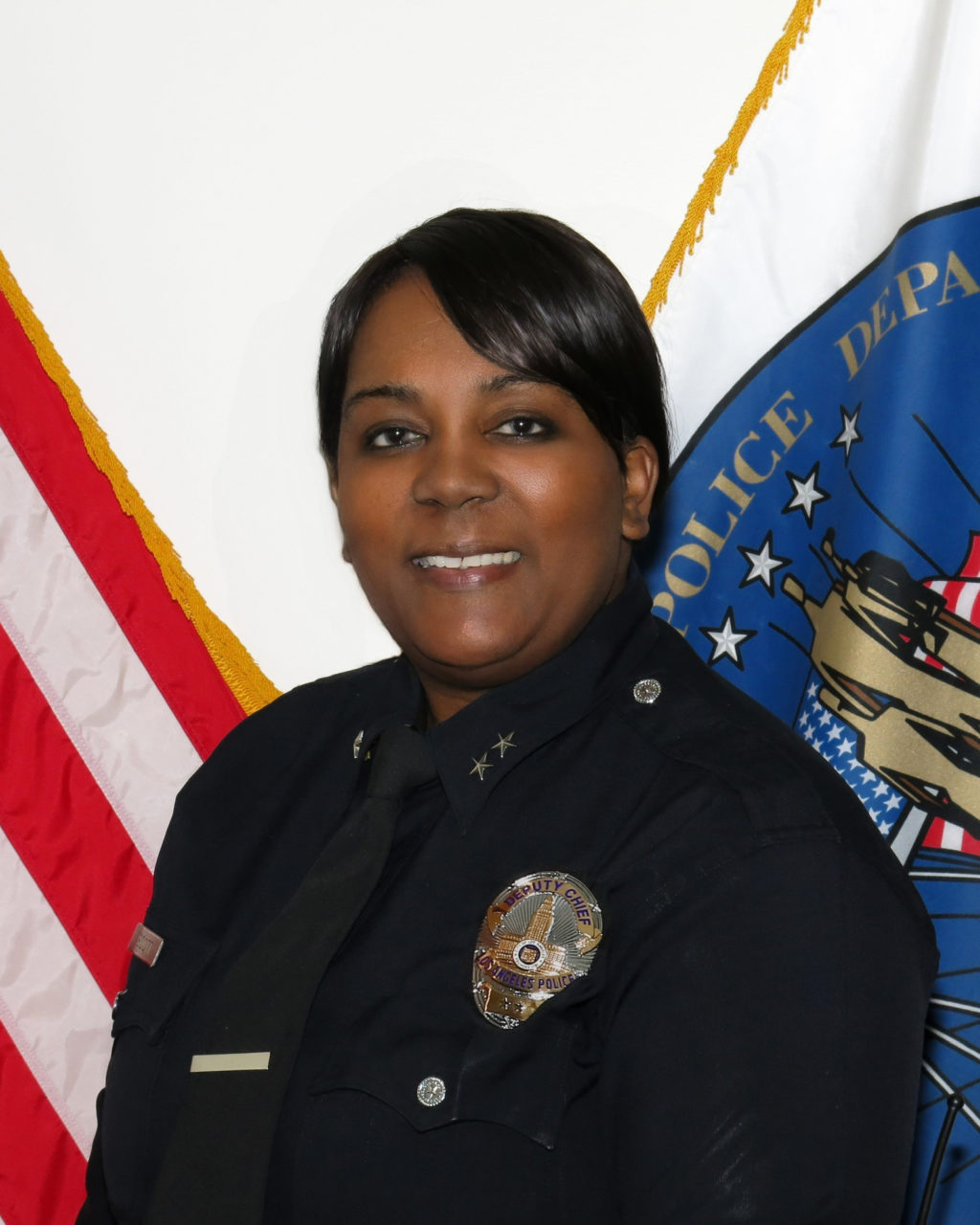How to Resolve On-the-Job Conflict, Part 1
June 14, 2019 | Filed in: Your Career
Over the next few weeks, we’ll be exploring the theme of conflict at work. We asked leaders in high-intensity fields to share their solutions to workplace power struggles by sketching some scenarios they’ve dealt with in their daily routines. First up: Los Angeles Police Department Deputy Chief Regina Scott.

Photo courtesy of Regina Scott.
If the first two words that spring to mind are “violent” and “corrupt” when you mention where you work, then you know you’ve got a serious job ahead of you. Chief Regina Scott, promoted last year to deputy chief of the Los Angeles Police Department, knows all too well her employer’s reputation, forged during the Watts riots in the 1960s and reinforced in the Rodney King riots in the 90s. Nevertheless, Scott, the first African-American woman to hold the deputy chief position in the LAPD, holds a hopeful vision. “Our organization has come far in the past few decades,” she says, “and I bring a new and refreshed way of looking at how you can be the police without being militaristic.”
Want more M.M.? Sign up for our newsletter.
Over a 32-year career working in an environment that is predominantly male, frequently dangerous, often complex, and requiring split-second decision-making, Scott has faced countless conflicts and learned to manage them. Here, she shows how to take the lead in the thorniest situations, no matter what you do for a living.
The conflict: When your policy change gets pushback…
Until Scott took her post, narcotics officers would typically serve search warrants by pounding on a door—“Bam, bam, bam, bam, Police!” she says, demonstrating the approach—and entering by force. She put an end to the practice. “Done with that,” she says. “I told my officers, ‘When you’ve got a search warrant, I no longer want rapid-entry as the standard. Give the people an opportunity to come out and comply.’” As she anticipated, her decision was met with some resistance. “We get it, ma’am, but they’re going to get rid of their dope,” she recalls some officers saying. So she explained her thinking: rapid-entry may help ensure a drug bust, but it can also lead to more violence. “I’ve got drugs or human life,” she told her reports. “I’ve got drugs or your safety.”
The resolution: Explain why you changed it—but only once.
“When making a tough call, I always try to tell people why,” Scott says. “You can tell them a compelling story and still be assertive.” Once you’ve offered that story, though, the conversation is over: “I don’t care what they say at that point—there’s nothing that’s going to change my mind. But I’ll tell them, ‘I’m always open for conversation later, after we see how this approach goes.’”
In other words, you can explain your thinking without undermining your authority. Once, that is. Then, you end the discussion. “I don’t care what they say at that point, there’s nothing that’s going to change my mind,” Scott says. “But I’ll tell them, ‘I’m always open for conversation later.’”
The conflict: When you want to assert your authority…
“I don’t go up to the front during a [group] conversation. I sit in the middle,” Scott says. “I have not asked my officers to do anything that I have not done myself or that I’m not willing to do. I think part of [my success] is my willingness to come down to their level and listen to what they have to say. I can empathize because I’ve been there before.”
The resolution: Lead by example.
“We are rank structured, just like the military, and I think because of that, when you go out in the community, you kind of police that way,” Scott says. “If I’m [demanding] ‘yes ma’am, no ma’am, just the facts ma’am,’ how do I expect an officer to go out and be human to the public?” she says. “It’s a mixed message.”
The conflict: When your team deserves a boost…
Scott recalls an instance where one of her divisions achieved a zero crime report—a rare occurrence. “I could have sent a little thank-you [email],” she says. “But I went out and bought 100 donuts. I told them, ‘I braved that’”—meaning, the teasing that comes with being a cop buying donuts—“just for you. Because the donut is not just a donut. It’s the zero that the donut represents. Zero crime.”
The resolution: Don’t deny them.
“I remember coming up through the organization, the only time we’d see the captain is when we messed up,” Scott says. “So I try to make sure that I don’t only address them then.” She also stresses the importance of being fair in the case of a misstep. “I look at the bigger picture,” she says. “I can be disappointed in your behavior today, but I will give you a chance to do better tomorrow. I won’t hold it against you forever.”
The conflict: When you experience gender bias…
“At times in my career, my male counterpart and I could give the exact same order, but my words would be second-guessed and his words would be the final word—everyone would move on and do what they needed to do,” Scott says. “Or if a guy’s seriously focused, people are like, ‘Oh, look at him concentrate,’ whereas when a woman’s seriously focused, they’re like, ‘What’s she angry about?’”
The resolution: Assert yourself but do it your way.
Whether we like it or not, there are often perception problems that come with being a woman in charge. As an African-American woman in her job, Scott is acutely aware of this and she often modifies her behavior to get the results she wants. “I really have to put people at ease,” she explains. She’ll often deepen her voice (“I put a little bass in [it]—just enough so that it’s not squeaky”), soften her expression, or use humor when giving orders.
“It’s a leadership role, and I think people just hear the leadership part, but they don’t hear the role part,” she says. “I’ve really taken it like an actor’s role.” She recognizes that her approach doesn’t necessarily suit every woman looking to establish herself. “Some [women] say, ‘I don’t understand why I have to change because of them’—and I respond, ‘You don’t. This just makes it easier for you.’”
Scott’s ultimate aim is one that women in any industry can support. “We’re trying to get into the room, so we can sit at the table, so we can stand on the table, so we can break the glass ceiling,” she says. “Then we can start making changes.”









